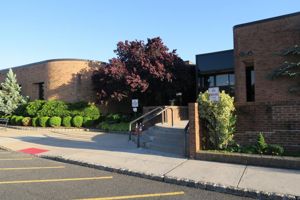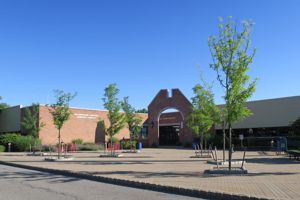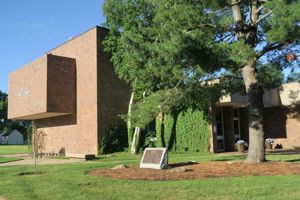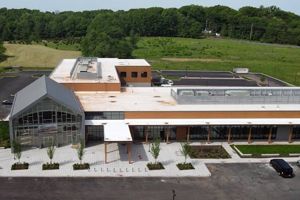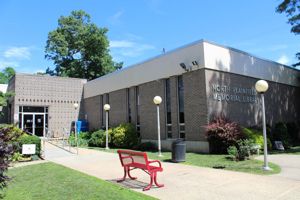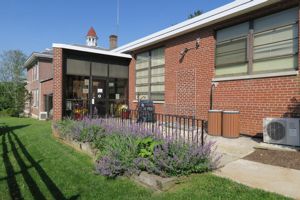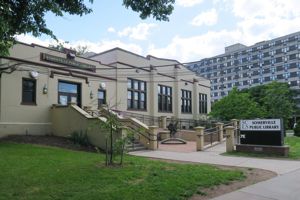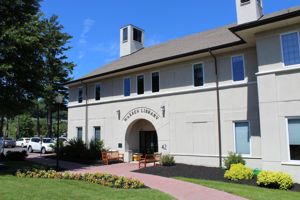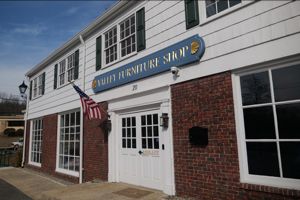Digitally Delve Into True-Crime, History With New York Times Best-Selling Author Lisa Wingate and Your Library
About Blog Post
Apr 1, 2021
by Pressroom
Meet New York Times best-selling author Lisa Wingate through a virtual program with the Somerset County Library System of New Jersey (SCLSNJ) on May 1 from 2-3 p.m.
“SCLSNJ is privileged to welcome New York Times best-selling author Lisa Wingate,” said Christopher Korenowsky, director of public services. “Her impressive writing resume includes over 30 novels with the most recent publication being ‘The Book of Lost Friends’ from earlier this spring. Avid readers will definitely want to put Ms. Wingate's program in 2021 on their personal calendars.”
During the program, Library customers will have the opportunity to explore Wingate’s life and works, including her best-selling true-crime novel 2017’s “Before We Were Yours.”
"Before We Were Yours," which has sold over one million copies worldwide, is based on one of America’s most notorious real-life scandals: Georgia Tann and the children’s home she operated from the 1920s-50s.
“As a former journalist, I always have my radar up for a story,” said Wingate. “I never know where I’ll come across one, but I know it when I hear it.”
Wingate was inspired to write the novel after indulging in a late-night rerun of “Investigation Discovery: Dangerous Women.”
“I tuned in and immediately became fascinated by the bizarre, tragic, and startling history of Georgia Tann and her Memphis branch of the Tennessee Children’s Home Society,” she said. “One of the most shocking things about the story was how recent it was. After watching the segment, I literally could not clear the images from my mind.”
She continued, “I couldn't stop wondering about the thousands of children who had been victimized by Georgia’s system, who had been brokered in adoptions for profit. I wanted to tell their stories.”
The author of 33 novels and counting also finds herself drawing inspiration from her own life experiences and family members. “Tending Roses,” her first mainstream novel that she calls her “sentimental favorite,” was inspired by her grandmother and the stories she shared.
“There are bits of real people and experiences in each of my novels,” said Wingate. “[‘Tending Roses’] was inspired by my grandmother, who was a survivor, a woman ahead of her time, and a wonderful storyteller. While the story is fictional, the grandmother’s stories in the book are my grandmother's stories.”
The novel tells the story of a young woman living on a remote Missouri farm who struggles to care for her husband, baby, and ailing grandmother. The woman seeks inspiration in the pages of her grandmother's journal, which parallels Wingate’s own experience that she shared with her own grandmother.
When Wingate’s first son was born, her grandmother stayed with her, her husband, and the baby. During her stay, her grandmother worked with her on sprucing up her starter home and shared the story that was the catalyst for the novel.
“She spoke of the rose garden she had planted as a new bride, and how it withered and grew wild when she became a young mother, her time occupied with caring for a family,” said Wingate. “Something profound happened to me when my grandmother told that story. I realized I was so focused on goals down the road that I was missing the value of where I was right then, as a young mother with a beautiful new baby. That night, I wrote the story in a notebook.”
She continued, “Over the course of our visit, I added others. A few years later, I came across the notebook and had the idea of embedding these real-life stories within a fictional one—the journey of a grandmother and granddaughter, the passing on of wisdom, the cycle of life.”
In addition to drawing inspiration from real-life events, Wingate’s writing process also involves copious amounts of research and investigation in order to accurately depict the timeframe and characters that she is writing about.
“For me, there is no substitute for those voices of lived experience,” she said. “Studying them gives a sense of not only the cadence of the language, but the reference points of everyday life. I’m always discovering nuggets of lost history, tales of forgotten places and little-known events. I’m the sort of person who drives past old, abandoned buildings and stops to wonder.”
Wingate began writing stories before she was even in school, and fondly recalls writing about animals as an “early-on devotee of books like ‘Stuart Little’ and ‘Rabbit Hill,’” later transitioning to science fiction and fantasy topics as a teenager. Her love for reading and writing started early on, where she calls her visits to the school library as “the highlight” of her school weeks.
“I was a voracious reader and seldom without a book, which naturally meant that my favorite school year was my year of working as a middle-school library aid,” she said. “I learned how to catalog books; how to shelve books; how to check out, recommend, and repair books. Being behind the desk was a particular thrill, and yes, I was also one of the library’s best consumers. Reading stories taught me much about writing stories.”
Due to the pandemic, Wingate’s visits to libraries have not been as frequent. As a result of this shift to her normal habits, she is looking forward to connecting with library customers through digital platforms.
“In this year of the pandemic, my visits to actual libraries for events have been far fewer, but through virtual platforms like Zoom and Facebook, I’ve been able to meet readers and library folks I would never have met otherwise,” she concluded. “Who would have thought?”
“Lisa Wingate is best known for her best-selling standalone novels, but did you know she wrote series as well?,” said Yvonne Selander, collection development manager. “Travel to the Houston, Texas area in her Moses Lake series or stick to the East Coast in her Carolina Heirlooms series.”
Explore new territories through Wingate’s series:
Moses Lake series
Carolina Heirlooms series
Discover these titles and more with SCLSNJ: catalog.sclsnj.org.
Connect with Wingate and your Library: sclsnj.libnet.info/event/4598691.
